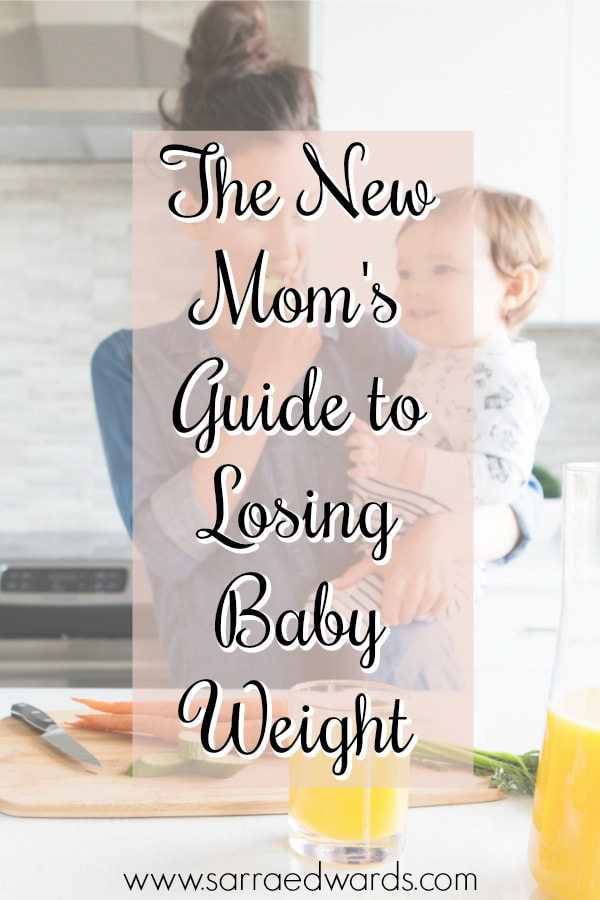|
No fitness and weight-loss plan to help you lose baby weight is complete without nutritional adjustments. Getting back to your pre-baby weight may be your first goal; however, the most important thing to consider at this time is fuelling your body for this next stage of motherhood. We’ve compiled the most updated expert recommendations to commonly asked questions asked by new mommas who are eager to lose baby weight. How Many Calories Should You Eat to Lose Baby Weight? Fun fact: Your body uses more energy to produce a sufficient milk supply for your little one than it did throughout the pregnancy. In fact, your body requires more calories — approximately 500 calories for the first six months depending on body fat and extent of breastfeeding — than your pre-pregnancy needs. That’s about 200 calories more than your doctor likely advised you to consume during the second and third trimesters. La Leche League International advises breastfeeding moms to wait at least two months before making a specific effort to lose weight in order to allow your body to recover and ensure a steady milk supply. But you may be able to start a program for losing baby weight sooner if you aren’t breastfeeding or if your doctor gives you the OK. For those impatient mommas, know that breastfeeding women naturally lose one to four pounds per month without even lifting a finger. OK, to be fair, you’re doing quite a lot to nourish and care for your baby; it’s incredibly demanding work to nurture a newborn! Add that on top of the burn from your new workout routine, and you can safely lose weight while you continue to bond with and nurse your baby. Just like any other stage of your life, your diet should be healthy, balanced, and varied. An adequate intake for nursing mothers who are trying to lose weight is ideally at least 1,800 calories or more to continue producing a healthy milk supply. Mothers who are unable or choose not to breastfeed don’t need these extra calories. What Should You Eat to Lose Baby Weight? There are no “magic” weight-loss foods for nursing mothers. To maintain a balanced diet while increasing your total daily intake if you’re breastfeeding, it’s best to introduce additional foods from all macronutrients instead of loading up on foods from just one category (no matter how hard that pancake or ice cream craving strikes!). Here is a good way to do this:
An important point to remember when losing weight while breastfeeding: Slow and steady wins the race. Gradual weight loss can help ensure you’re receiving enough energy to produce breastmilk as well as keep that milk supply safe. By keeping your milk “safe,” we mean avoiding drastic, rapid weight loss because this may interfere with the quality of your breast milk. Chemicals and pollution in the environment combined with ones we encounter day to day, such as toxins in cosmetics, certain plastics, and pesticides in our food, are fat-soluble and stored in adipose tissue (fat cells). As you lose weight, fat is broken down and these toxins are released. Your body is extremely efficient and can clear many of these toxins before they reach your little one through breast milk; however, if your weight drops too fast, it could be a larger burden on your system and higher toxin levels may end up in your milk. Incremental amounts of toxins from normal exposure haven’t been shown to affect babies’ brains or development so there’s no reason to stop or avoid breastfeeding. But it’s best to be mindful of these sources and choose safer alternatives such as natural cleaning supplies, re-usable BPA-free water bottles, and organic produce. Overall, the antibodies, nutrients, and other benefits of breastmilk far outweigh any potential risks. Nutrition Tips for Moms Who Want to Lose the Baby Weight Stay hydrated Mothers often feel extreme thirst while nursing. First and foremost, keep a glass or bottle of water by your side throughout the day, and drink enough to satisfy your thirst. According to the Institute of Medicine’s Dietary Reference Intakes, adequate intake (AI) for water during lactation is 3.8 liters (about 16 cups) a day of total water, which is made up of the water in food plus 3.1 liters (about 13 cups) as total beverages, including drinking water. If you’re working out, you may need additional water, depending on your sweat rate and the intensity and duration of your workout. Clear, light-colored urine can help indicate proper hydration. Is it safe to have caffeine and/or alcohol while nursing? Need a little coffee or tea in your life? According to La Leche League International, a little bit of caffeine shouldn’t pose a problem for most mothers and babies. The kicker is to keep it to a reasonable amount, less than 24 ounces (approximately 285 milligrams caffeine) of coffee, and possibly hold off until three to four months postpartum, as this is when the baby develops the ability to metabolize caffeine. If you notice your baby is fussy, wide-eyed and too alert, forgo the tea, coffee, chocolate, and other sources of caffeine. If three to four months sans caffeine seems horrific, especially in your sleep-deprived state, just think back to the nine (plus) months you went without alcohol. Which begs the question, “Is it safe to ‘pump and dump’ or even have a glass while breastfeeding?” According to the American Academy of Pediatrics, it’s advised to avoid habitual use of alcohol during the nursing stage; however, moderate use with ample time before the next feeding or pumping (at least two hours per drink) will allow the body to process and rid itself of the alcohol. But alcohol clearance time varies for each individual, so be mindful of your unique response. In addition, alcohol can modify the taste of breastmilk, which your baby might reject. This could ultimately reduce his or her nutrient intake. Are supplements safe? In all likelihood, the intensity of your post-pregnancy workout routine won’t constitute a need for any specific sports-performance supplements. Nursing mothers should always consult their medical professional before beginning any fitness program or taking any supplement or meal replacement product. Eating more food will most likely supply the additional macro and micronutrients necessary for milk production, as long as the meals are balanced and contain a wide variety of foods to supply a range of vitamins and minerals. In general, women who are nursing compared to non-pregnant/non-nursing women need additional vitamin A, folate, iodine, and zinc. Other vitamins and minerals of concern include vitamin D, calcium, magnesium, and certain B vitamins. Your doctor may suggest a post-natal multivitamin or specific supplements according to your personal health needs. The Bottom Line Remember that while some days you may feel desperate to get your old body back, it’s important not to put too much pressure on yourself. Try to make slow, incremental changes as your body and mind adjust to this major life change. Eating healthy and exercising will not only make you feel better in the long term, but it’ll also make you a better mom because you’re taking care of yourself. What’s more, as your baby grows, he or she will see and mimic your active and nutritious lifestyle — and that’s a gift that will just keep on giving. Article by: Krista Maguire, R.D., C.S.S.D.
1 Comment
Angela Cameron
6/17/2018 01:55:19 pm
I kept myself active and cut out soda and fast food completely. I gained 60 lbs with both pregnancies (gestational diabetes), and right now, I'm a size 1. I wholeheartedly believe that breastfeeding and Mummy magic weight loss tea played a big part in it!
Reply
Leave a Reply. |
Categories
All
Archives
September 2018
|






 RSS Feed
RSS Feed